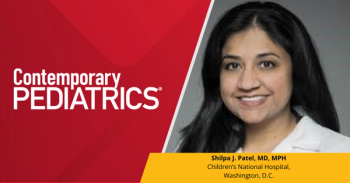
Parents want to know risks of head CT imaging
Almost all parents prefer an informed discussion about the risks of brain computed tomography before going ahead with the head imaging for their children.
Although about half of parents are aware of potential cancer risks arising from brain computed tomography (CT) scans, disclosure of current lifetime malignancy risks in an emergency department (ED) reduces by about 20% the proportion of parents who would be willing to proceed with a recommended head CT, and almost all parents prefer an informed discussion before going ahead. In addition, the vast majority of parents want to be informed of potential malignancy risks before proceeding with imaging.
These were the findings of a survey of parents of children in a tertiary care pediatric ED being evaluated for a head injury; the survey was administered before the child had been assessed by a physician. Participants were also informed about the increased lifetime cancer risk and were given a handout about balancing the benefits and potential risks of head CT imaging.
Of almost 750 parents, 46.8% were aware of a possible increased lifetime malignancy risk from CT. However, 62.9% underestimated the current best risk estimate (about 1 in 10,000). At the start of the study, 90.4% of parents indicated they would be willing to proceed with a head CT if deemed necessary by the emergency physician, but this proportion fell to 69.7% after risk information was provided, and 41% would want further discussion with the physician before proceeding. A full 90.7% indicated that before having the testing they would prefer to know the potential malignancy risks of diagnostic tests that expose children to ionizing radiation (Boutis K, et al. Pediatrics. 2013;132[2]:305-311).
COMMENTARY These researchers conclude their discussion by writing: “. . . We strongly recommend that physicians be well informed of the benefits and potential risks of CT imaging.” We need to know this information not only to fulfill parents’ wishes to be informed but also to help as we balance the risks and benefits of CT scans in making our recommendations to families. The most recent calculation that I’ve seen is that 4 million pediatric CT scans/year in the United States are projected to cause 4,870 future cancers (Miglioretti DL, et al. JAMA Pediatr. 2013;167[8]:700-707). -Michael Burke, MD
MS FREEDMAN is a freelance medical editor and writer in New Jersey. DR BURKE, section editor for Journal Club, is chairman of the Department of Pediatrics at Saint Agnes Hospital, Baltimore, Maryland. He is a contributing editor for Contemporary Pediatrics. They have nothing to disclose in regard to affiliations with or financial interests in any organizations that may have an interest in any part of this article.
Newsletter
Access practical, evidence-based guidance to support better care for our youngest patients. Join our email list for the latest clinical updates.








